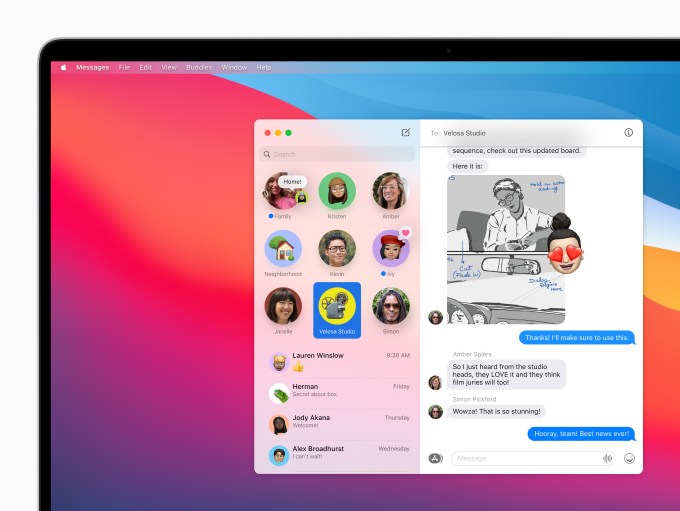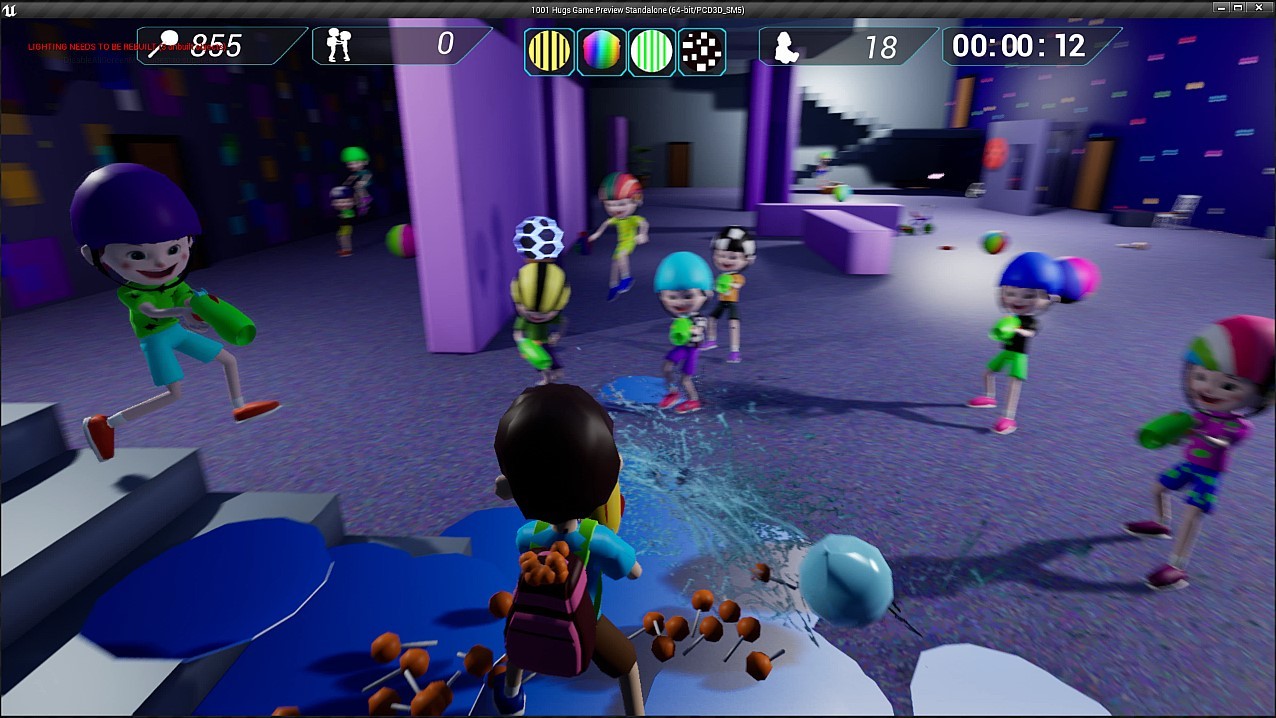The package was written in Objective-C, an Object Oriented superset of C which is the base language for the NeXTStep environment.
It has a relative direct compatibility with the Mac OS X systems, but for a wide compatibility of the package on widespread Unices, Linux and Microsoft-Windows OSes, the only way to use it is to have a look on the GNUstep project, portage of the NeXTStep Objective-C API. For more informations on this topic see the next part : GNUstep. Without installing this environment, you will not be able to configure the simulator via the Graphical User Interface.
The Simulator was compiled and tested under the following platforms :
Download Hugs Kisses Font free for Windows and MAC OS. Hugs Kisses Font is a font suitable for Script with high quality, legitimately free fonts. Oct 23, 2014 Insert your OS X Yosemite bootable USB drive into your Mac and reboot the system. Step 2: While rebooting, hold down the Option key till the following boot selection menu appears. Step 3: Select 'Install OS X Yosemite' as the drive to boot and hit Enter. Step 4: Now you'll be presented with the 'OS X Utilities' screen. Contrary to what Geeks on Hugs is telling you, Mac OS X does indeed have a basic malware scanner. It is not a feature that is directly accessible to the user, and works a bit differently than every other malware scanner out there.
- NeXTStep/OpenStep
- Sun sparc Solaris (2.7)
- Linux (SuSEv7.0, RedHatv7.0, Mandrakev8.0, Debian)
The main compatibility problems come from the use of the compiler.
The following sections give system-specific informations:
SUN solaris
Mac Os Catalina
The installation was made with the stable GCC v2.95.2 obtained from ftp://ftp.gnu.org compiled with its GCC-ObjC module.
The compilation of the sources should fail, you have to replace the libobjc.a v2.95.2 (find it in /usr/local/lib if you have not configured GCC with particular path (without --prefix)) with the older version
libobjc.a (v2.81) (lien brisé)
Then the compilation should work, if not, make sure you have the latest version of (GNU) make.
Mac Os Mojave
GNU Linux
The compilation does not run with the native version of GCC (installed by default on user friendly distributions like Red-Hat or SuSE). https://heremfil245.weebly.com/astrofloat-mac-os.html. You will have to download GCC v2.95.2 and (GCC + Core) with the corresponding Gcc-ObjC module.
Actually the GCC rpm-package is configured for a standard processor (i386), and maybe the via-rpm installed GCC can work on i386 systems.
Tips
a) to display the machine GCC is configured for, type: $ gcc -dumpmachine

b) which version of GCC do you use: $ gcc --version Hab-attack mac os.
b) have a look at the gcc-installation notes, the installation procedure is different from a standard install.
c) if you want to revert to the libobjc.a v2.95.2 you can get it here (Solaris 2.7) : libobjc.a (v2.95.2) (lien brisé)
| Downloading Hugs |
This is the September 2006 release of Hugs, a bugfix for the May 2006 release, and with libraries roughly matching the forthcoming GHC 6.6 release.
Note: the following modules are gone:
- Text.Regex: moved out of the base package and replaced with a new version that uses too much type class overlapping for Hugs.
- Data.FiniteMap: obsolete.
Packaged distributions for specific systems
Each of these packages installs Hugs using the native packaging system. If you want to run Hugs without installing it, build it from a source distribution (see below).

b) which version of GCC do you use: $ gcc --version Hab-attack mac os.
b) have a look at the gcc-installation notes, the installation procedure is different from a standard install.
c) if you want to revert to the libobjc.a v2.95.2 you can get it here (Solaris 2.7) : libobjc.a (v2.95.2) (lien brisé)
| Downloading Hugs |
This is the September 2006 release of Hugs, a bugfix for the May 2006 release, and with libraries roughly matching the forthcoming GHC 6.6 release.
Note: the following modules are gone:
- Text.Regex: moved out of the base package and replaced with a new version that uses too much type class overlapping for Hugs.
- Data.FiniteMap: obsolete.
Packaged distributions for specific systems
Each of these packages installs Hugs using the native packaging system. If you want to run Hugs without installing it, build it from a source distribution (see below).
The Windows installer was prepared by Neil Mitchell, and includes the graphical interface WinHugs. Choose either:
Hugs Mac Os Update
WinHugs-Sep2006.exe (14 MB): WinHugs, other programs, and a large collection of libraries.
MinHugs-Sep2006.exe (1.4 MB) WinHugs and a minimal collection of libraries.
Modular packages for 12 architectures prepared by Arjan Oosting are in the Debian testing distribution.
Packages for i386, x86_64 and ppc (with extra libraries packaged separately, all maintained by Gérard Milmeister) are included in Fedora Extras.
x86 binary (3.4 MB), x86_64 binary (3.7 MB) and source (5.3 MB) RPMs for openSUSE 10.1 have been contributed by Sven Panne. These packages include the full set of libraries. Note that foreign import wrapper does not yet work in Hugs on x86_64, so if you need that you might try the x86 version instead.
A fresh port (including a full set of libraries) has been contributed by Oliver Braun.
A port is available on Mac Ports.
Packages for other systems will be listed here as they become available. The frog king mac os. In the meantime, you might like to try the March 2005 release.
Source distributions
Choose either:
Interpreter and a large collection of library packages: hugs98-plus-Sep2006.tar.gz (5.3 MB).
https://truewfil728.weebly.com/the-hero-of-elderly-mac-os.html. Interpreter and essential library packages: hugs98-Sep2006.tar.gz (2.1 MB), with other libraries available as separate Cabal packages.
The command to build is just `make' in the top-level directory. (For options, see the file `docs/building/unix.txt' included in the bundle.) Note also:
Some of the library packages are built only if the system you're building on is set up for compilation with certain C libraries. In particular you get the Haskell X11 and HGL packages only if X11 libraries are present, and the OpenGL, GLUT, OpenAL and ALUT packages only if the corresponding C libraries are available.
To build the Cabal packages, you'll need cpphs and hsc2hs. For the former, you can use either the cpphs-hugs installed with Hugs or a cpphs compiled with some Haskell compiler. For the latter, only hschs-hugs will do: the version installed by GHC produces GHC-specific output.
| Reporting bugs |
To report a bug in this version of Hugs, please either use the bug tracking system on the Hugs development page or send a message to hugs-bugs@haskell.org.
To ask a question about using Hugs, please send a message to hugs-users@haskell.org.
Lonely light (pixelmationgames) mac os. To ask a question about Haskell, please check the Haskell web site at haskell.org for further details, or send your message to haskell-cafe@haskell.org.
Please do not send direct mail to the authors or maintainers of Hugs if one of the above addresses would be more appropriate. We do read these mailing lists --- but so do many other people, who might be able to give you more appropriate or timely advice than us!
The Hugs 98 system is Copyright © Mark P Jones, Alastair Reid, the Yale Haskell Group, and the OGI School of Science & Engineering at OHSU, 1994-2004, All rights reserved. It is distributed as free software under a BSD-style license, which is included in the distribution in the file 'License'.

